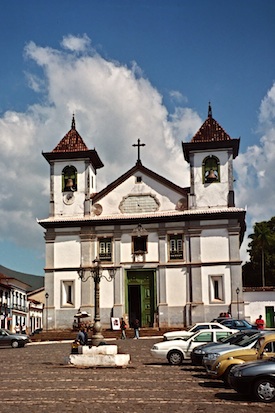History of This Project

Many people ask me how I became interested in Latin American Choral Music. Here’s the humble story:
I founded an independent, community-based adult chorus in the middle 1980’s, and was, of course, very involved in applying for various grants. At the time the buzz-words were “multicultural” and “ethnic.” Since I am by nature an explorer and researcher, I asked myself what areas of music were not being covered by other local choirs. Latin America, I concluded, was definitely a neglected area. “Hmmm,” I thought, “it’s largely Roman Catholic, and must have a history of church music, probably in Latin, which I know well. Coincidentally, in the late 1980’s I began doctoral studies, singing in the graduate chorus at Michigan State University. We performed Castelnuovo-Tedesco’s Romancero Gitano, and I was thrilled with the beauty of the language and the culture it introduced to me. Eureka! I decided to explore the world of Latin American music, and find the best possible repertoire for my choir to perform.
Well, the more I learned about Latin Amerian music, the more I fell in love with it. I went to Indiana University and other libraries to look at every piece of music I could. Finding the music and researching the subject was very difficult, though. I wrote down everything I could, including the holdings of the various libraries I visited. When I told Ricardo Lorenze, acting head of I. U.’s Latin American Music Center, about it, he said I had to have it published. With his help, and that of Ricardo Arias at American Conservatory, it was published by Greenwood Press in 1992. Now I know that nobody else has to do what I had to do to enjoy that wonderful music!
What I had done initially for grant money turned in to a labor of love which I have continued to do since about 1990. My choir has performed a great deal of the repertoire as well, and West Michigan is now more aware of the great variety and quality of music from the many countries in Latin America.
I plan to continue this work, realizing that the world-wide internet has expanded the accessibility of information well beyond what can be done by one person, especially since I am not a native of a Latin American country. I encourage other people to share the information they have by sending links from their own web sites to this one, and exploring in more depth various aspects of these repertoires and their cultural contexts.
–Suzanne S. Tiemstra
English